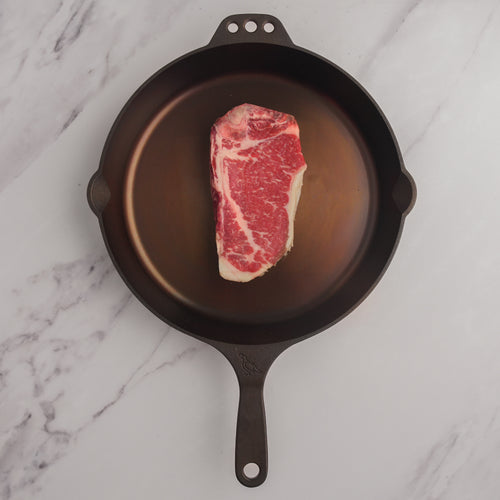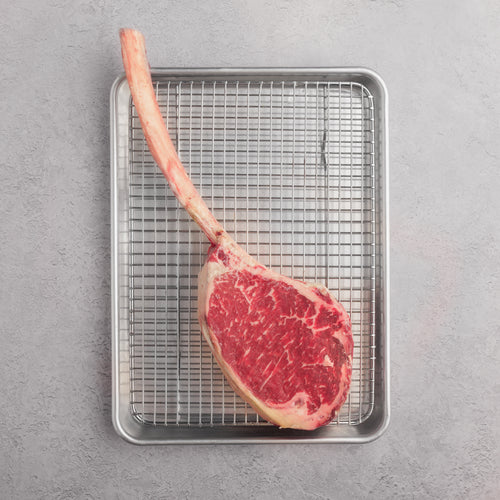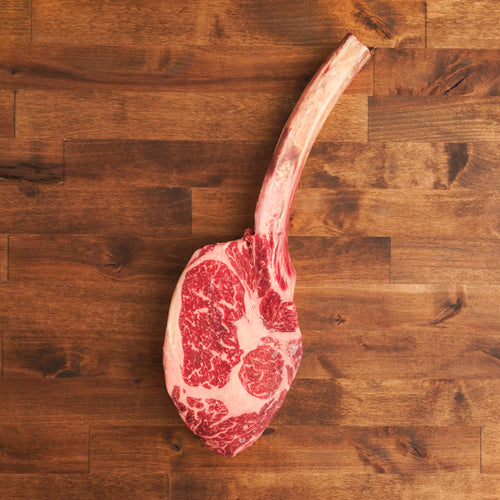
Wet Aged vs Dry Aged
Get the lowdown on wet-aged vs. dry-aged beef, including how each process works and how it affects your dining experience.
Dry-Aging: As Old As Time Itself
How did people preserve meat before they had refrigerators? They dry aged it. Of course, they didn’t call it by that relatively recent term, but the process has been around for thousands of years.
At its most basic, dry aging involves allowing large primal cuts of beef to rest in a climate-controlled place for a period of time. Natural enzymes start to break down the muscle tissue, tenderizing the meat. Moisture evaporates and the natural beefy flavors concentrate inside the primal. The process results in a loss in overall weight from both water evaporation and trimming away the dried outer crust.
Wet-Aging: A Modern Adaptation
Modern-day advances in refrigeration and plastics have led to so-called “wet” aging beef, which generally takes less time than dry aging. Those same large cuts are vacuum-sealed to retain moisture — thus the wet moniker — and kept in refrigerators while the enzymes do their tenderizing work. Most meat you buy at the grocery store or from a butcher has been wet aged for a week or so.
How Does Aging Affect Flavor?
Most of us associate the beefy flavor and tender texture of steak with wet-aged beef. It’s a more cost-effective method because it’s generally faster and easier to control than dry aging.
Dry-aged beef delivers a different experience altogether. Because the enzymes have been allowed to do their work, these steaks are very tender. The aroma tends to be more pungent, often with notes of buttered popcorn. The flavor of dry-aged steaks is more concentrated than wet-aged meat, and it gets stronger the longer it is aged. Steaks that are dry aged for 60 days or longer have been described as bringing a nutty flavor to the table.
Wet-Aged vs Dry-Aged Beef: Which Way is Better?
Just like choosing the best way to cook a steak, the choice between wet-aged and dry-aged beef is a matter of preference. We wet age Snake River Farms American Wagyu beef for 21 days in a meticulously controlled facility, then flash freeze it at the peak of flavor and tenderness. Of course, our beef has an edge over grocery store cuts because we’re starting with beef that is genetically predisposed to superior marbling — which always yields an elevated dining experience.







